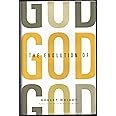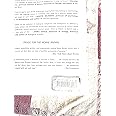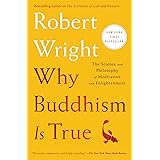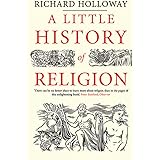
Enjoy fast, free delivery, exclusive deals, and award-winning movies & TV shows with Prime
Try Prime
and start saving today with fast, free delivery
Amazon Prime includes:
Fast, FREE Delivery is available to Prime members. To join, select "Try Amazon Prime and start saving today with Fast, FREE Delivery" below the Add to Cart button.
Amazon Prime members enjoy:- Cardmembers earn 5% Back at Amazon.com with a Prime Credit Card.
- Unlimited Free Two-Day Delivery
- Streaming of thousands of movies and TV shows with limited ads on Prime Video.
- A Kindle book to borrow for free each month - with no due dates
- Listen to over 2 million songs and hundreds of playlists
- Unlimited photo storage with anywhere access
Important: Your credit card will NOT be charged when you start your free trial or if you cancel during the trial period. If you're happy with Amazon Prime, do nothing. At the end of the free trial, your membership will automatically upgrade to a monthly membership.
Buy new:
-5% $24.62$24.62
Ships from: Amazon Sold by: Julia's Book Store
Save with Used - Good
$6.15$6.15
Ships from: Amazon Sold by: J W Antiques

Download the free Kindle app and start reading Kindle books instantly on your smartphone, tablet, or computer - no Kindle device required.
Read instantly on your browser with Kindle for Web.
Using your mobile phone camera - scan the code below and download the Kindle app.

OK
 Audible sample Sample
Audible sample Sample 


The Evolution of God Hardcover – June 8, 2009
Purchase options and add-ons
Nearly a decade in the making, The Evolution of God is a breathtaking re-examination of the past, and a visionary look forward.
- Print length576 pages
- LanguageEnglish
- PublisherLittle, Brown and Company
- Publication dateJune 8, 2009
- Dimensions6.25 x 1.5 x 9.25 inches
- ISBN-109780316734912
- ISBN-13978-0316734912
The Amazon Book Review
Book recommendations, author interviews, editors' picks, and more. Read it now.
Frequently bought together

Similar items that may deliver to you quickly
Editorial Reviews
From Publishers Weekly
Copyright © Reed Business Information, a division of Reed Elsevier Inc. All rights reserved.
From The New Yorker
Copyright ©2008 Click here to subscribe to The New Yorker
From Bookmarks Magazine
Review
"In his brilliant new book, The Evolution of God, Robert Wright tells the story of how God grew up. He starts with the deities of hunter-gatherer tribes, moves to those of chiefdoms and nations, then on to the polytheism of the early Israelites and the monotheism that followed, and then to the New Testament and the Koran, before finishing off with the modern multinational Gods of Judaism, Christianity and Islam. Wright's tone is reasoned and careful throughout...and it is nice to read about issues like the morality of Christ and the meaning of jihad without getting the feeling that you are being shouted out...Provocative and controversial."―Paul Bloom, New York Times Book Review
"On any list of nonfiction authors that many people may not know but should, Robert Wright would rank high. . . . taken together, The Moral Animal, Nonzero, and The Evolution of Godrepresent a powerful addition to modern thought. If biology, culture and faith all seek a better world, maybe there is hope."―Gregg Easterbrook, Wall Street Journal
"While the diatribes of the "new atheists"-Richard Dawkins, Sam Harris, and company-have made headlines in recent years, Wright takes a decidedly more friendly approach to humanreligiousness...Wright's approach will appeal to a broad range of readers turned off by the "either/or" choice between dogmatic atheism and religious traditionalism. Recommended for all readers engaged in consideration of our notions of God."―Library Journal
"The Evolution of God offers the sort of hope even unbelievers can believe in: that we can somehow learn to talk about religion."―Stephen Prothero, The Washington Post
"Can religions in the modern world reconcile themselves to one another, and can they reconcile themselves to science?" Robert Wright-journalist, philosophy professor, and author of the acclaimed books Nonzero, and The Moral Animal-ardently believes the answer is yes. In this meaty account, the result of 10 years of scholarly research, he attempts to do so, drawing on evolutionary psychology, archaeology, and game theory to trace a common pattern in the world's monotheistic faiths. It's a thoroughly materialist account of religion and yet is ultimately allied with one of religion's basic goals: to provide guidance and comfort in a chaotic world."―Seed Magazine
"[The Evolution of God] gives me hope...The tone of the book is dry skepticism with a dash of humour; the content is supple, dense and layered...fresh and necessary."
―Andrew Sullivan, The Times
PRAISE FOR NONZERO:
"An original, accessible and thought-provoking view of history...full of rich detail, ingenious insight and bold argument."―The Economist
About the Author
From The Washington Post
Copyright 2009, The Washington Post. All Rights Reserved.
Product details
- ASIN : 0316734918
- Publisher : Little, Brown and Company; 1st edition (June 8, 2009)
- Language : English
- Hardcover : 576 pages
- ISBN-10 : 9780316734912
- ISBN-13 : 978-0316734912
- Item Weight : 1.85 pounds
- Dimensions : 6.25 x 1.5 x 9.25 inches
- Best Sellers Rank: #140,066 in Books (See Top 100 in Books)
- #127 in General History of Religion
- #151 in Comparative Religion (Books)
- #168 in History of Religions
- Customer Reviews:
About the author

Robert Wright is a contributing editor of The New Republic, a Slate.com columnist, and a visiting scholar at the University of Pennsylvania. He is the cofounder of www.bloggingheads.tv, runs the web-based video project www.meaningoflife.tv, and lives in Princeton, NJ, with his wife and two daughters.
Customer reviews
Customer Reviews, including Product Star Ratings help customers to learn more about the product and decide whether it is the right product for them.
To calculate the overall star rating and percentage breakdown by star, we don’t use a simple average. Instead, our system considers things like how recent a review is and if the reviewer bought the item on Amazon. It also analyzed reviews to verify trustworthiness.
Learn more how customers reviews work on Amazon-
Top reviews
Top reviews from the United States
There was a problem filtering reviews right now. Please try again later.
"In this book I talk about the history of religion, and its future, from a materialist standpoint. I think the origin and development of religion can be explained by reference to concrete, observable things-human nature, political and economic factors, technological change, and so on...On the one hand, I think gods arose as illusions, and that the subsequent history of the idea of god is, in some sense, the evolution of an illusion. On the other hand: (1) the story of this evolution itself points to the existence of something you can meaningfully call divinity; and (2) the "illusion," in the course of evolving, has gotten streamlined in a way that moved it closer to plausibility. In both of these senses, the illusion has gotten less and less illusory."
He uses this explanatory framework to explain the evolution of religion from early pantheism and polytheism, to more recent monolatrism (belief in many gods, but worship of only one) and monotheism. By doing this he recognizes a clear trend in history, one that is leading to a universalistic theology. To do this however, he deconstructs many of the religious texts using recent religious and archaeological scholarship. For example, he suggests that contrary to popular belief, Judaism has highly polytheistic origins. It was only due to geopolitical circumstance that brought it first into monolatry and finally monotheism.
He suggests that many of the attributed sayings of Jesus, especially those concerning universal love (ie. "love your enemies"), were added after the fact by Paul and others as a expansion strategy in the highly cosmopolitan Roman empire. He points to the fact that the earliest gospel of Mark, written approximately four decades after the Crucifixion, has many fewer miracles, universalistic sayings, and theological underpinnings than the later gospels, written five to seven decades after. The introduction of the "Logos" in John might have been influenced by Philo's attempts to reconcile Jewish and Greek traditions.
He suggests that the timeline of the Quran matches almost perfectly with the plight of Muhammad. For example, the earlier attributed writings include a greater moral consideration for even polytheists, possibly because his group was small and he needed to reach out to others. His later writings are much more militaristic and intolerant, possibly because he commanded great military power and he no longer needed to compromise his theology.
The bottom line in his whole book is that religion is an expression of facts on the ground. To say that one religion causes people to be tolerant or intolerant is not correct. There is room in all scriptures for tolerance when the believers see themselves in non-zero sum situations with their neighbors. There is also room for intolerance when believers see others as a threat to their livelihoods and beliefs. He gives the example of the Israeli/Palestinian conflict. In his mind, the "New Atheists", who point to this as an example of why religion is bad, are mistaken. Instead the root causes are highly non-religious, having much more to do with zero sum claims to land and historical grievances.
He ends the book on an optimistic note, asserting that the direction in history clearly points to the development of a peaceful global civilization, and concurrently, a more universalistic theology. In fact, he states that given the pace of technological advancement, this is the only choice if we are to avoid catastrophe.
In the conclusion he writes,
"At the core of each faith is the conviction that there is a moral order, and for the Abrahamic conception of God to grow in this fashion (universalism) would be yet more evidence that such an order exists. For Jews, Christians, or Muslims to cling to claims of special validity could make their faiths seem, and perhaps be, less valid...
Is it crazy to imagine a day when the Abrahamic faiths renounce not only their specific claims to specialness, but even the claim to specialness of the whole Abrahamic enterprise? Are such radical changes in God's character imaginable? Changes this radical have already happened, again and again. Another transformation would be nothing new"
Surprisingly, he also affirms the validity of personal conceptions of God as proxies for an abstract conception of higher purpose. In the afterword he goes into the implications of his narrative for belief in God. Instead of trying to summarize it, I will quote it at length.
"Given the constraints of human nature, believers in God are interacting with the moral order as productively as possible by conceiving its source in a particular way, however imperfect that way is. Isn't that kind of like physicists who interact with the physical order as productively as possible by conceiving of its subatomic sources in a particular way, however imperfect that way is...
Maybe the most defensible view-of electrons and of God-is to place them somewhere between illusion and imperfect conception. Yes, there is a source of the patterns we attribute to the electron, and the electron as conceived is a useful enough proxy for that source that we shouldn't denigrate it by calling it an "illusion; still, our image of an electron is very, very different from what this source would look like were the human cognitive apparatus capable of apprehending it adroitly. So too with God; yes, there is a source of the moral order, and many people have a conception of God that is a useful proxy for that source; still that conception is very, very different from what the source of the moral order would look like were human cognition able to grasp it...
So you might say that the evolution of the human moral equipment by natural selection was the Logos at work during a particular phase of organic aggregation; it was what allowed our distant ancestors to work together in small groups, and it set the stage for them to work together in much larger groups, including, eventually, transcontinental ones.
If you accept this argument-if you buy into this particular theology of the Logos-then feeling the presence of a personal god has a kind of ironic validity. On the one hand, you're imagining things; the divine being you sense "out there" is actually something inside you. On the other hand, this something inside you is an expression of forces "out there"; it's an incarnation of a non-zero-sum logic that predates and transcends individual people, a kind of logic that-in this theology of the Logos, at least-can be called divine. The feeling of contact with a transcendent divinity is in that sense solid."
As a Baha'i, this book is especially interesting for two reasons. First, Wright's understanding of the progressive evolution of God is very similar to a Baha'i understanding of "progressive revelation". Both would agree that religion changes based on the cultural and scientific capacity of people, and that the destiny of religion today is to be universalistic in nature. A difference would appear to be the emphasis on "revelation" that Baha'is place on religious evolution. For Baha'is, we live in a cycle of "revelation", in which God reveals new teachings through a "manifestation" of God. When this happens a new energy is manifest in the universe, and new capacity for spiritual and scientific development is made possible. While this would seem to contradict Wright's materialistic explanations of religious evolution, a more subtle understanding of "revelation" might seem to bridge the gap. Wright dedicates a whole section of his book to the thinking of Philo of Alexandria. Philo was a Jewish philosopher in the time of Christ who, according to Erwin Goodenough, "read Plato in terms of Moses, and Moses in terms of Plato, to the point that he was convinced that each had essentially the same things."Philo endeavored to bridge the gap between Judaism and Greek philosophy by developing the concept of the Logos. Wright uses Philo's approach to bridge the gap between "revelation" and a scientific account of human evolution in his own mind.
"The Logos...had in Philo's view given history a direction-in fact, a moral direction: a history moved toward the good. a Logos-driven history would eventually unify humankind in political freedom; the Logos would work 'to end that the whole of our world should be as a single state, enjoying the best of constitutions, a democracy.' At the same time, Philo believed the Logos had existed before humans or the earth or, for that matter, matter. Prior to creating the universe, God formulated the Logos the way and architect might conceive of a blueprint....First God conceived the Logos in his mind. Then, upon creating the world, he, in a sense, uttered the Logos, infusing matter with it. He spoke to the universe at its beginning, and, via the ongoing guidance of Logos, he speaks to us now...The Logos is humankind's point of contact with the divine. This is how the Logos reconciles the transcendence of God with a divine presence in the world. God himself is beyond the material universe...Yet...the algorithm...is an extension of a designer, a reflection of the designers mind...The job of human beings, you might say, is to in turn cooperate with the divinity. The Logos, he said, was reflected in the Torah, the Jewish law...it didn't just tell you how to behave in order to harmonize yourself with the principle that governs the universe...the rules of living laid out in the Torah were part of the Logos."
So if "revelation" is seen as a manifestation of a Logos, a design manifesting itself in the world through the process of biological and cultural evolution, then Wrights concept of progressive evolution is compatible with the Baha'i view of "progressive revelation".
The second reason this is so interesting to me is that it comes from the point of view of a skeptical materialist. Wright's background is writing about evolutionary psychology, yet he comes to almost the same theology as the Baha'i Faith. Baha'is believe in the harmony of science and religion, and often it is easy for us to claim this without fully accounting for the scientific interpretations of spiritual experience, and spiritual evolution. If, like Philo, we can continue to develop a language that fully accounts for the knowledge inherent in both the scientific process and revealed scripture, then we can collectively manifest this principle.
The first serious problem with this book is one Wright shares with Karen Armstrong in her "History of God." Both mention early on that primitive societies often have an idea of a Supreme God very like the Judeo-Christian God. (See "The Non-History of God" in my Jesus and the Religions of Man, for details.) They then promptly move on to other matters -- such as telling how God evolved -- forgetting that, if God was there in the begginning, no evolution is necessary! All the clever conjecture Wright engages in is rendered rather mute -- for example when he explains a characteristic of God that must reflect some advanced stage of social evolution under the Roman Empire -- since it was also imputed to God among hunters and gatherers in Africa and Australia where such social structures were absent.
The problems deepen as Wright moves to the New Testament. We are told (this is a major theme) that Jesus did not teach love (at least not love of Gentiles), despite the claims of all the Gospel writers to the contrary, despite earlist Christian teaching, and despite the evidence that the Jesus movement was monumentally multi-cultural. On what grounds are we asked to ignore this evidence? On the grounds that there is little evident concern for Gentiles in the Gospel of Mark, and that Jesus obliquely refers in ONE INSTANCE to Gentiles as "dogs." But Wright ignores a couple other passages that do seem to affirm ministry to Gentiles, even in Mark. And of course Mark is the shortest and most succinct Gospel, focusing on action rather than words.
This is poor historical method. One does not legitimately throw out sources that disconfirm one's theory, simply because one prefers a single source that may (if tendentiously read) affirm it to some extent.
And then Wright blows his own argument out of the water by telling us that Paul is likely borrowing from Jesus on some other issue, because after all he did have fairly good access to Jesus' teachings, so that is the most likely source of his opinions on that subject. Well why not say so in the first place? Why shouldn't the same argument also apply to Paul's mission to the Gentiles? Isn't it likely that here, too, he had reason to believe it was in agreement with the teachings of Jesus? That would also have the merit of agreeing with the rest of the evidence -- if not Wright's evolutionary theory.
And indeed, how likely is it that a cynical modern scholar, writing 2000 years later, would be able to reconstruct the ACTUAL moral teachings of Jesus in defiance of almost all the evidence, while early followers, writing within the plausible lifespan of Jesus' first disciples, were deeply mistaken about so basic and fundamental issue as whether they were to preach to goyim?
On such issues, while I wrote a book refuting them, I would almost wish the Jesus Seminar on Wright. He could learn a lot about the radical nature of Jesus' teachings from scholars like Marcus Borg, John Crossan, Walter Wink, and even Robert Funk, even if they confirmed him in some of his other unfortunate intellectual biases.
Wright has read a great deal; his bibliography is long, and full of serious sources. (Another dramatic contrast with, say, Dawkins' The God Delusion.) His sources, however, are almost all from other skeptics -- people like Pagels, Ehrman, even the discredited Morton Smith. He fails to interact with informed Christian scholars, often to the hurt of his arguments.
Nevertheless, this book is so urbane, literate, and full of interesting (if debatable) ideas, that I found it a great pleasure to read. His application of Game Theory to the growth of religion is valid as far as it goes -- I'm surprised he doesn't at all interact with Rodney Stark's Discovery of God, which covers most the same territory, though with radically different conclusions. Wright attempts to see religion with both eyes, rather than squinting as if through a gun sight, like the New Atheists. This delightful book rises splendidly to the dignity of profound error.
author, The Truth Behind the New Atheism
Top reviews from other countries
No soy creyente y el análisis ese muy respetuoso. El planteamiento final excelente.
10/10 and highly recommended!
Für meine Erfahrungen stellt der Autor den Islam allerdings zu positiv dar. Neben vielen friedlichen Suren finden sich in dieser Religion leider viel zu viele extrem aggressiv-grausame Aufforderungen an die Gläubigen, so dass sich jeder Extremist allzu leicht mit dem Hinweis auf den Islam rechtfertigen kann. Aber Wright bringt wenigstens Zitate derartiger Suren. Insgesamt ein sehr lesenswertes Sachbuch.
Dr. Dieter Bedenig, Solothurn













